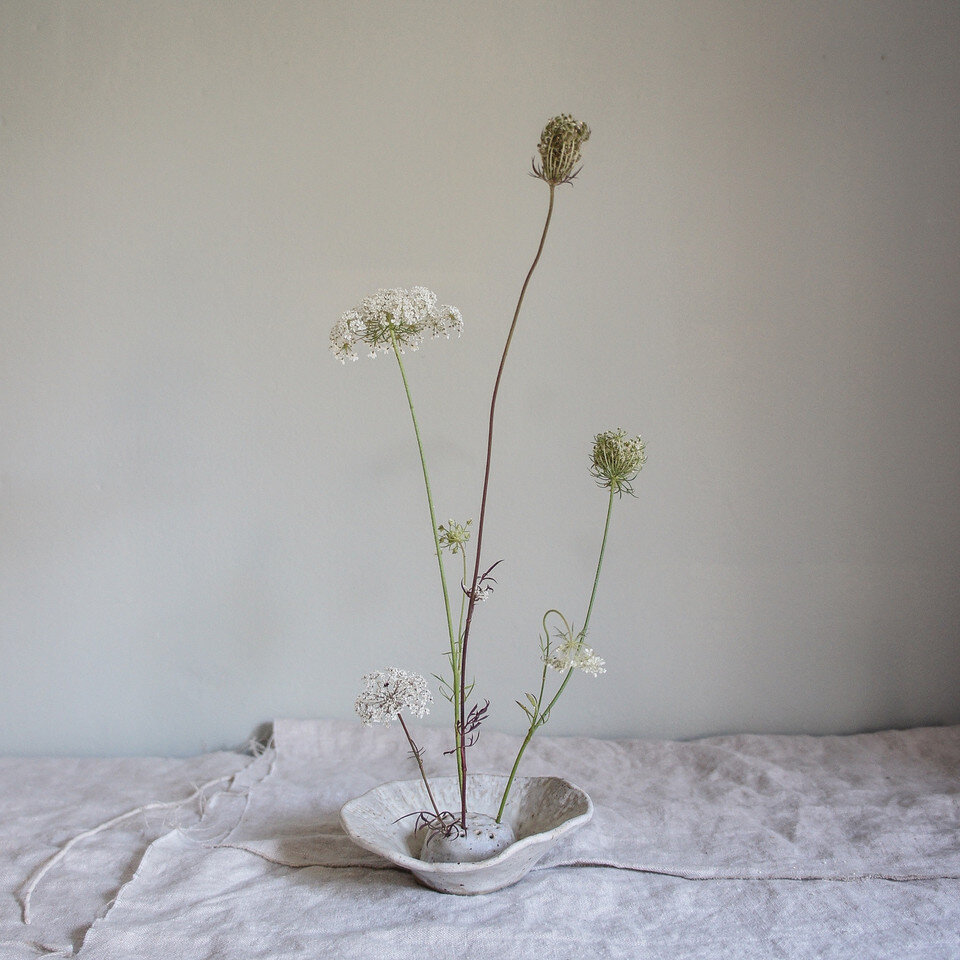ikebana: a japanese art
We love to collect seasonal stems and grasses on our walks, so we created our collection of Ikebanas as a versatile way of displaying them in our homes. The term ‘Ikebana’ comes from the Japanese art of flower arranging, ‘Ike’ meaning ‘alive’ or ‘arrange’ and ‘bana’ meaning ‘flower’. These minimal displays are thoughtfully created to show movement, balance and harmony by using a simple selection of branches or stems.
We have two Ikebana designs in our collection, the first design is made from flecked stoneware which is hand-built in two pieces - the main dome that holds the stems and then an outer cone shape that has a subtle emboss on the clay’s surface. We created this emboss by gently rolling a foraged twig into the clay. This particular twig has the most unusual pattern in its bark, so we are protecting it at all costs! We’re always on the lookout for interestingly patterned objects and textures on our walks, and this little twig caught our eye on one of our woodlands walks in the Vale of Belvoir.
Delicate stems of cow parsley and Queen Anne’s lace make up our favourite displays. The soft shades of green with clouds of white bloom at different stages, creating a minimal display and pair so well with the natural off-white glaze.
Our porcelain Ikebana is a delicate yet sturdy piece, with tapered holes to allow for a variety of different stems. This piece is made from porcelain clay and left unglazed to show the soft, undulating surface of the clay. Which has been gently pressed into shape with fingertips. We can imagine this piece being displayed in so many ways. Whether, as part of a beautifully minimal tablescape, placed in the centre of the table, or sitting quietly on the shelf amongst an array of carefully curated objects.
Dried grasses such as bunny tails, sweet grasses, Lunaria and feathery reeds make our suggested displays. Beautifully minimal with flourishes of a pale brown, feathered texture.
Our Ikebana’s can also hold a little water to keep your stems fresher for longer.





